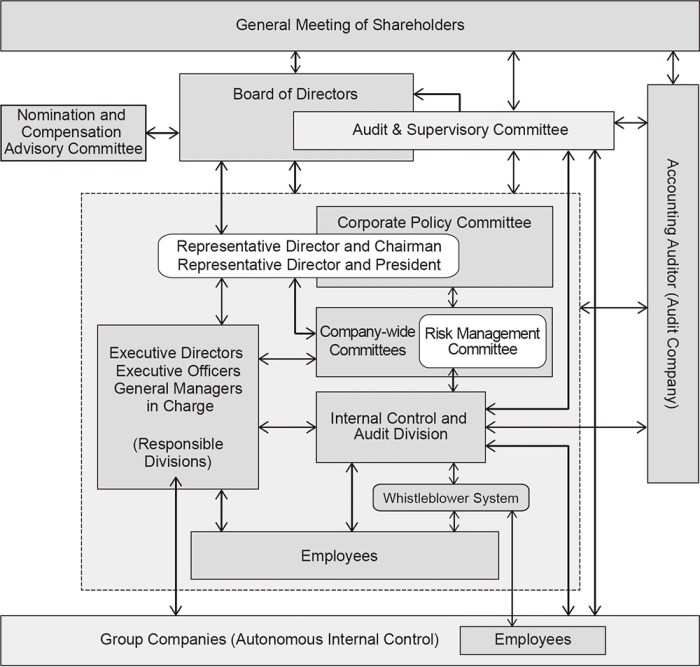How the Global Tax Justice Movement Impacts Corporate Financial Strategies is a critical topic examining the evolving relationship between corporate financial planning and the increasing pressure for global tax fairness. The movement, fueled by growing awareness of tax avoidance and evasion by multinational corporations, is reshaping the landscape of international taxation. This shift necessitates a reevaluation of corporate strategies, from tax planning and optimization to financial reporting and stakeholder engagement. We will explore how these pressures are forcing companies to adapt, innovate, and reconsider their long-term financial goals.
This analysis will delve into the specific strategies employed by the global tax justice movement, highlighting its impact on various aspects of corporate finance. We will examine the effects on corporate tax planning, financial reporting transparency, investment decisions, and the integration of tax justice principles into corporate social responsibility initiatives. Furthermore, we will explore the challenges and opportunities that lie ahead for corporations navigating this increasingly complex and dynamic environment.
The Rise of Global Tax Justice and its Core Principles
The global tax justice movement has gained significant momentum in recent decades, fueled by growing awareness of the scale of tax avoidance and evasion by multinational corporations and wealthy individuals. This movement represents a shift in global discourse, challenging traditional notions of tax sovereignty and advocating for fairer and more equitable international tax systems. Its rise is intrinsically linked to increased globalization, technological advancements facilitating cross-border financial transactions, and a growing recognition of the detrimental impact of tax avoidance on public services and development.
The movement’s emergence can be traced back to several key factors. Firstly, the increasing complexity of international finance and the rise of sophisticated tax planning strategies by multinational corporations allowed them to shift profits to low-tax jurisdictions, significantly reducing their global tax burden. This practice deprives governments of much-needed revenue for essential public services like healthcare, education, and infrastructure. Secondly, growing inequality, both within and between countries, further fueled the movement. The perception that the wealthy and powerful are not paying their fair share exacerbates societal tensions and fuels calls for reform. Finally, increased public awareness and activism, facilitated by the internet and investigative journalism, have played a crucial role in exposing the scale of tax avoidance and mobilizing support for the movement. The Panama Papers and Paradise Papers leaks, for example, provided irrefutable evidence of widespread tax evasion, significantly boosting public support for reform.
Core Principles and Goals of the Global Tax Justice Movement
The global tax justice movement is driven by several core principles. Central to these is the belief that taxation should be fair and equitable, ensuring that all individuals and corporations contribute their fair share to the common good. This involves addressing tax avoidance and evasion, promoting transparency in financial transactions, and ensuring that tax systems are designed to raise sufficient revenue to fund public services and reduce inequality. The movement advocates for a system where tax policies are aligned with social and environmental goals, promoting sustainable development and reducing the negative impacts of globalization on developing countries. A key goal is to empower developing countries to increase their tax revenue, enabling them to invest in essential services and reduce their reliance on foreign aid.
Different Approaches within the Movement
The global tax justice movement is not monolithic; diverse approaches and strategies exist within it. Some organizations focus on advocating for international tax reforms through lobbying and policy engagement at the international level, such as the OECD. Others prioritize public awareness campaigns and grassroots mobilization, using investigative journalism and citizen action to expose tax avoidance and pressure governments to act. Still others focus on legal challenges and litigation, aiming to hold corporations and individuals accountable for tax evasion. These different approaches often complement each other, creating a multifaceted movement with a shared goal of achieving greater tax justice.
Key Organizations and Their Strategies
The following table Artikels some key organizations involved in the global tax justice movement and their primary strategies:
| Organization | Primary Strategy | Focus Area | Example Initiative |
|---|---|---|---|
| Tax Justice Network | Research, advocacy, public education | International tax reform, corporate tax avoidance | Publishing the Financial Secrecy Index |
| Oxfam International | Advocacy, campaigning, public awareness | Inequality, development, corporate accountability | Campaigns on ending tax havens |
| Christian Aid | Advocacy, research, campaigning | Development, poverty reduction, corporate responsibility | Work on promoting fair taxation in developing countries |
| Global Justice Now | Campaigning, activism, public education | Global inequality, corporate power, trade justice | Challenging unfair trade agreements |
Impact on Corporate Tax Planning and Optimization

The rise of the global tax justice movement has significantly altered the landscape of corporate tax planning and optimization. Increased international cooperation and a greater focus on transparency have forced multinational corporations to re-evaluate their strategies, moving away from aggressive tax avoidance techniques towards more sustainable and ethically sound practices. This shift is driven by a growing understanding of the detrimental effects of tax havens on developing nations and the need for a more equitable distribution of tax revenue.
Increased scrutiny of corporate tax practices has led to a fundamental reshaping of how businesses approach international tax. The days of easily exploiting loopholes and minimizing tax liabilities through complex structures are becoming increasingly numbered. This necessitates a proactive approach to compliance and a shift towards a more sustainable long-term tax strategy.
Transfer Pricing Scrutiny and Multinational Corporate Strategies
The OECD’s Base Erosion and Profit Shifting (BEPS) project has significantly impacted transfer pricing, the pricing of goods and services exchanged between related entities of a multinational corporation. Increased scrutiny of intercompany transactions aims to prevent the artificial shifting of profits to low-tax jurisdictions. Multinationals are now required to provide detailed documentation justifying their transfer pricing methodologies, demonstrating that they align with arm’s length principles – meaning transactions should reflect what independent parties would agree to in a similar situation. This requires sophisticated internal systems and greater transparency in intercompany dealings, leading to increased compliance costs and a need for specialized expertise in international tax law. Failure to comply can result in significant penalties and reputational damage. For example, companies like Starbucks and Google have faced significant investigations and adjustments to their transfer pricing arrangements, resulting in substantial back taxes.
Changes in Tax Haven Usage, How the Global Tax Justice Movement Impacts Corporate Financial Strategies
The global tax justice movement has significantly reduced the attractiveness of tax havens. Increased information sharing between tax authorities through initiatives like the Common Reporting Standard (CRS) has made it more difficult for corporations to conceal profits in these jurisdictions. The public shaming of corporations utilizing tax havens, combined with stricter regulations, has forced many to reconsider their reliance on such strategies. While some tax havens continue to exist, their effectiveness in facilitating aggressive tax avoidance is diminishing. Companies are increasingly choosing to restructure their operations to minimize their reliance on tax havens, focusing instead on aligning their tax strategies with the principles of tax transparency and fairness. This often involves shifting profits back to higher-tax jurisdictions, potentially increasing overall tax liabilities but mitigating reputational risk and avoiding potential legal consequences.
Shift in Corporate Tax Reporting Transparency Requirements
The demand for greater transparency in corporate tax reporting has intensified. Many countries are now requiring companies to publicly disclose their tax payments on a country-by-country basis. This level of detail provides greater insight into a company’s tax practices, enabling stakeholders, including governments and civil society organizations, to assess the fairness and legitimacy of their tax strategies. This increased transparency also empowers shareholders and investors who are increasingly concerned about the ethical implications of a company’s tax practices. The adoption of Country-by-Country Reporting (CbCR) under the BEPS initiative is a prime example of this global push for greater transparency, aiming to shed light on how multinational corporations distribute their profits and pay taxes across different jurisdictions.
Hypothetical Scenario: Adapting to Stricter Tax Regulations
Imagine a hypothetical technology company, “InnovateTech,” operating globally with subsidiaries in several countries, including a low-tax jurisdiction previously used for profit shifting. Facing increased scrutiny under stricter tax regulations and public pressure for greater transparency, InnovateTech decides to proactively adapt. They invest in robust transfer pricing documentation, ensuring all intercompany transactions are meticulously justified according to arm’s-length principles. They restructure their operations, shifting some intellectual property rights and profits from their low-tax subsidiary to higher-tax jurisdictions, accepting a higher overall tax liability in exchange for reduced risk and improved reputation. They also implement enhanced internal controls and invest in training for their tax team to ensure compliance with evolving regulations. This proactive approach allows InnovateTech to maintain its global operations while mitigating potential legal and reputational risks associated with aggressive tax avoidance. Their shift toward compliance, while initially costing more, proves to be a sustainable long-term strategy that builds trust with stakeholders and strengthens their brand image.
Changes in Corporate Financial Reporting and Disclosure
The rise of the global tax justice movement has significantly impacted how corporations report their financial information, pushing for greater transparency and accountability in their tax practices. This shift is driven by increased public scrutiny, stricter regulations, and a growing demand for responsible corporate behavior. The resulting changes in corporate financial reporting are multifaceted, encompassing new disclosure requirements, altered accounting practices, and a greater emphasis on the presentation of tax-related information.
The increased pressure for transparency has led to significant changes in corporate financial reporting related to tax matters. This section will explore these changes, providing examples and illustrating the variations in reporting practices across countries with different levels of tax transparency.
Examples of Changed Corporate Financial Reporting
Several jurisdictions have implemented new reporting requirements in response to tax justice initiatives. For example, the European Union’s Country-by-Country (CbC) reporting directive mandates multinational enterprises (MNEs) to disclose detailed information on their profits, taxes paid, and number of employees in each country where they operate. This initiative aims to enhance transparency and facilitate tax authorities’ efforts to identify and address aggressive tax planning strategies. Similarly, the United States’ Tax Cuts and Jobs Act of 2017 introduced new reporting requirements for certain international transactions, aiming to improve the IRS’s ability to monitor and assess the tax compliance of multinational corporations. These requirements necessitate detailed reporting on various aspects of cross-border transactions, including the nature of the transaction, the related parties involved, and the associated tax implications. These changes represent a significant shift towards greater disclosure of tax-related information by corporations.
New Reporting Requirements Mandated by International Bodies or Individual Nations
Beyond CbC reporting, other international initiatives and national regulations are driving changes in corporate financial reporting. The OECD’s Base Erosion and Profit Shifting (BEPS) project, for example, has led to numerous recommendations aimed at improving international tax cooperation and transparency. Many of these recommendations have been translated into national laws and regulations, resulting in new reporting requirements for MNEs. These requirements often include detailed disclosures on transfer pricing policies, intangible assets, and related-party transactions. Furthermore, some countries have implemented specific regulations requiring companies to disclose their effective tax rates, highlighting the difference between their statutory tax rates and the taxes they actually pay. This increased level of detail allows stakeholders to better assess a company’s tax strategies and their potential impact on public revenue.
Comparison of Financial Reporting Practices Across Countries
Countries with higher levels of tax transparency generally exhibit more robust and comprehensive corporate financial reporting practices related to tax matters. For instance, in countries with strong anti-tax avoidance legislation and independent tax authorities, companies are more likely to provide detailed disclosures on their tax payments and tax strategies. Conversely, in countries with weaker regulatory frameworks and less transparency, companies may provide less detailed information, potentially obscuring their tax practices. This disparity in reporting practices highlights the importance of international cooperation and the need for consistent standards in corporate financial reporting to promote greater tax transparency globally. A comparative study of corporate tax disclosures in countries with varying levels of tax transparency could reveal significant differences in the breadth and depth of the information disclosed, offering valuable insights into the effectiveness of different regulatory frameworks.
Potential Future Reporting Changes Driven by the Tax Justice Movement
The tax justice movement is likely to continue driving further changes in corporate financial reporting. Future changes may include:
- Expanded CbC reporting requirements, encompassing more detailed information on tax strategies and related-party transactions.
- Mandatory disclosure of tax avoidance strategies employed by companies, even if those strategies are legally compliant.
- Increased scrutiny of tax havens and related transactions, leading to more stringent reporting requirements for companies operating in or through these jurisdictions.
- The development of standardized global reporting frameworks for corporate tax information, promoting greater comparability and transparency across jurisdictions.
- Increased use of technology, such as blockchain, to enhance the accuracy and security of tax-related data reporting.
These potential changes reflect the growing demand for greater transparency and accountability in corporate tax practices, a key objective of the global tax justice movement. The implementation of these changes would significantly enhance stakeholders’ ability to scrutinize corporate tax strategies and hold companies accountable for their tax obligations.
Impact on Investment Decisions and Capital Allocation
The global tax justice movement significantly alters the landscape for corporate investment decisions and capital allocation. Increased scrutiny of tax practices, coupled with evolving regulations, compels companies to reassess their strategies, prioritizing long-term sustainability and ethical considerations alongside profitability. This shift necessitates a more nuanced approach to international expansion and resource deployment.
The movement’s influence on Foreign Direct Investment (FDI) decisions is profound. Companies are increasingly evaluating potential investment locations not only based on traditional factors like market size and infrastructure, but also on the stability and fairness of the tax system. Jurisdictions with reputations for aggressive tax avoidance or opaque tax structures are becoming less attractive destinations for FDI, while those committed to transparency and fair taxation are gaining a competitive edge. This shift is driving a realignment of global investment flows, favoring countries with robust tax governance frameworks.
Foreign Direct Investment (FDI) Location Choices
Companies are actively diversifying their FDI portfolios to mitigate risks associated with shifting tax landscapes. For instance, a multinational corporation might reduce its investment in a country facing increased tax scrutiny, opting instead to invest in a jurisdiction with a more predictable and transparent tax regime. This involves comprehensive due diligence to assess not only the immediate tax implications but also the potential for future regulatory changes. This proactive approach minimizes potential disruptions and maximizes long-term returns. A hypothetical example could be a technology company shifting planned investments from a tax haven with a history of aggressive tax planning investigations to a country with a stable, well-regarded tax system, even if it means slightly higher tax rates. The stability and predictability outweigh the marginally higher tax burden.
Capital Allocation Strategy Adjustments
In response to tax justice pressures, many companies are reallocating capital away from tax optimization schemes towards investments in areas such as research and development, employee training, and sustainable practices. This reflects a broader shift towards a more responsible and sustainable business model, where long-term value creation is prioritized over short-term tax benefits. Examples include companies investing in renewable energy projects or improving supply chain transparency, recognizing these investments as both socially responsible and financially advantageous in the long run. These adjustments demonstrate a strategic shift from aggressive tax planning to a more holistic approach that integrates ethical considerations into core business operations.
Impact of Tax Uncertainty on Corporate Investment Planning
The ever-evolving nature of international tax regulations and the increased scrutiny of tax practices introduce significant uncertainty for corporate investment planning. This uncertainty can lead to delays or cancellations of investment projects as companies grapple with the complexities of navigating changing tax landscapes. The unpredictability makes it difficult to accurately forecast future tax liabilities, impacting the reliability of financial models and hindering long-term strategic planning. For example, a company might delay a major expansion project if there is significant uncertainty regarding future tax rates or regulations in the target market. This delay can have significant implications for growth and competitiveness.
Increased Tax Compliance Costs and Investment Decisions
The rising costs associated with complying with increasingly complex tax regulations further impact investment decisions. Companies face escalating expenses related to tax advisory services, internal compliance programs, and potential penalties for non-compliance. These increased costs can reduce the profitability of investment projects, potentially leading to the cancellation or postponement of projects that might have been viable under a simpler, less costly regulatory environment. This financial burden can disproportionately affect smaller companies with limited resources, hindering their growth and competitiveness. For instance, a small business might decide against expanding into a new market if the compliance costs associated with navigating international tax regulations outweigh the potential benefits.
The Role of Corporate Social Responsibility (CSR) and Stakeholder Engagement
The global tax justice movement has significantly impacted how corporations approach corporate social responsibility (CSR), pushing them to reconsider their strategies and prioritize transparency and ethical tax practices. This shift reflects a growing expectation from stakeholders that businesses contribute positively to society, extending beyond mere profit maximization to encompass fairness and responsible global citizenship.
The increased scrutiny surrounding corporate tax practices has forced companies to re-evaluate their CSR strategies and integrate tax fairness as a core component. This involves not only complying with tax laws but also proactively engaging with stakeholders to demonstrate their commitment to responsible tax governance. The movement’s influence is evident in the evolving relationship between businesses and their various stakeholders – including investors, employees, customers, and communities – regarding tax matters.
Corporate Social Responsibility Strategies and Tax Justice
The global tax justice movement directly influences corporate social responsibility strategies by increasing pressure to prioritize ethical tax practices. Companies are now actively incorporating tax transparency and fairness into their CSR reports and initiatives. This often includes publishing tax information, such as the effective tax rate and geographic distribution of profits, to enhance accountability. A failure to address tax concerns effectively can damage a company’s reputation, leading to boycotts, divestment, and decreased investor confidence. Conversely, proactive engagement with tax justice principles can strengthen a company’s brand image and enhance stakeholder trust.
Stakeholder Engagement on Tax Fairness and Transparency
Companies engage with stakeholders on tax fairness and transparency through various channels. This includes publishing detailed tax reports, participating in public consultations on tax policy, and engaging in dialogues with civil society organizations and advocacy groups. Many corporations are now establishing dedicated teams focused on tax governance and stakeholder engagement to manage these complex interactions. Increased use of online platforms and social media also allows for more direct and immediate feedback from stakeholders on tax-related issues. Open communication and responsiveness to stakeholder concerns are becoming increasingly crucial for maintaining a positive corporate reputation in the context of the global tax justice movement.
Comparison of CSR Approaches Based on Tax Compliance
Companies with high levels of tax compliance often proactively integrate tax justice principles into their CSR strategies. They may engage in public reporting of their tax affairs, support initiatives promoting tax transparency, and actively participate in discussions regarding tax reform. In contrast, companies with a history of aggressive tax avoidance or non-compliance often face increased scrutiny and may adopt more defensive CSR approaches, focusing on general philanthropic activities rather than directly addressing tax-related concerns. This difference in approach reflects a growing understanding that a comprehensive CSR strategy must encompass ethical tax practices. The contrast between these approaches underscores the increasing importance of tax transparency and accountability as key elements of a credible CSR strategy.
Case Study: Integrating Tax Justice Principles into CSR
Imagine a multinational technology company, “InnovateTech,” facing criticism for its aggressive tax optimization strategies in low-tax jurisdictions. In response, InnovateTech launched a comprehensive CSR initiative focusing on tax justice. This involved publishing a detailed tax transparency report outlining its global tax payments, effective tax rates, and the rationale behind its tax structuring decisions. They also committed to working with tax authorities to ensure compliance with all applicable laws and to actively participate in public dialogues on international tax reform. Furthermore, InnovateTech established an independent ethics committee to oversee its tax practices and provide guidance on future tax strategies. This proactive and transparent approach helped restore stakeholder trust and demonstrate a commitment to ethical tax governance, showcasing how a company can successfully integrate tax justice principles into its overall CSR strategy and improve its public image.
Future Trends and Challenges for Corporations

The global tax justice movement is reshaping the international tax landscape, forcing corporations to adapt their financial strategies and navigate a complex and evolving regulatory environment. The increasing scrutiny of tax practices, coupled with growing public pressure for greater transparency and accountability, necessitates a proactive and strategic approach to tax planning and compliance. This section will explore the key future trends and challenges corporations will face in this evolving context.
Potential Future Impacts on Corporate Financial Strategies
The ongoing push for greater tax transparency and harmonization will significantly impact corporate financial strategies. Companies can expect increased compliance costs, necessitating investment in sophisticated tax technology and expertise. Furthermore, the potential for increased tax liabilities in jurisdictions with stricter regulations will require careful recalibration of global investment strategies. This may involve shifting profit allocation, reassessing transfer pricing models, and potentially even relocating certain operations to jurisdictions with more favorable tax regimes, although this last option is becoming increasingly less viable given the global cooperation in tax enforcement. A shift towards more sustainable and ethical business practices, driven in part by the tax justice movement’s focus on corporate social responsibility, will also influence investment decisions.
Challenges in Adapting to a Changing Tax Landscape
Adapting to a changing tax landscape presents numerous challenges for corporations. The complexity of international tax rules, coupled with varying interpretations and enforcement across jurisdictions, creates significant uncertainty and compliance risks. This necessitates a robust and agile approach to tax planning, requiring continuous monitoring of regulatory changes and proactive engagement with tax authorities. Furthermore, the increasing use of data analytics and artificial intelligence by tax authorities poses a challenge, requiring corporations to enhance their data security and management practices to prevent leakage of sensitive information. Maintaining a consistent global tax strategy while navigating the nuances of individual jurisdictions remains a major hurdle. For example, a company with operations in the EU might face different compliance requirements and interpretations of BEPS (Base Erosion and Profit Shifting) rules compared to operations in Asia, requiring significant adaptation in their internal tax processes.
Corporate Adaptation and Innovation in Tax Planning
Corporations must embrace innovation and adapt their tax planning strategies to remain competitive and compliant. This involves investing in advanced tax technology, including AI-powered tools for tax compliance and risk management. Strengthening internal tax expertise and developing collaborative relationships with external tax advisors are crucial. Proactive engagement with tax authorities to ensure transparency and address potential concerns is vital. Furthermore, integrating tax considerations into broader business strategy, rather than treating it as a separate function, is becoming increasingly important. For instance, a company considering a merger or acquisition must meticulously analyze the tax implications across all jurisdictions involved before proceeding. Ignoring these factors can lead to significant financial losses and reputational damage.
Potential Future Regulatory Changes Impacting Corporate Tax Strategies
Several potential regulatory changes may significantly impact corporate tax strategies in the coming years. These include:
- Further expansion of the global minimum tax, potentially impacting profit allocation and transfer pricing strategies.
- Increased enforcement of tax transparency rules, demanding more detailed reporting and disclosure of tax-related information.
- Enhanced cooperation between tax authorities globally, leading to improved information sharing and cross-border tax investigations.
- Greater emphasis on country-by-country reporting, providing more detailed information on corporate activities and tax payments in each jurisdiction.
- Introduction of digital services taxes or other targeted taxes on digital businesses, impacting the tax strategies of multinational technology companies.
These changes highlight the need for proactive adaptation and a long-term perspective in corporate tax planning. Failure to adapt could lead to significant financial penalties, reputational damage, and erosion of stakeholder trust.
Final Review: How The Global Tax Justice Movement Impacts Corporate Financial Strategies

The global tax justice movement is undeniably reshaping corporate financial strategies. The increased scrutiny of tax havens, stricter reporting requirements, and growing emphasis on corporate social responsibility are forcing companies to prioritize tax compliance and transparency. While adapting to this new landscape presents challenges, it also creates opportunities for corporations to demonstrate ethical conduct, enhance their reputation, and build trust with stakeholders. The future likely involves a continued evolution of tax regulations, necessitating ongoing adaptation and innovation in corporate financial planning to ensure long-term sustainability and success.
FAQ Compilation
What are some common tax avoidance strategies targeted by the Global Tax Justice Movement?
Common strategies include transfer pricing manipulation, using tax havens to shift profits, and exploiting loopholes in international tax laws.
How does increased tax transparency affect corporate decision-making?
Increased transparency leads to greater accountability and potentially higher effective tax rates, impacting investment decisions, capital allocation, and overall financial planning.
What role do international organizations play in the global tax justice movement?
Organizations like the OECD, IMF, and UN play crucial roles in setting international tax standards, promoting cooperation, and advocating for greater tax transparency and fairness.
What are the potential legal risks for corporations that engage in aggressive tax planning?
Corporations engaging in aggressive tax planning face potential legal repercussions, including fines, penalties, and reputational damage.
When investigating detailed guidance, check out How Accounting Practices Influence Market Competitiveness now.









